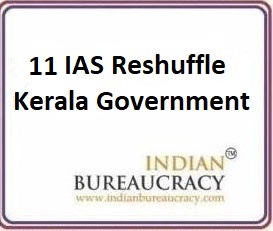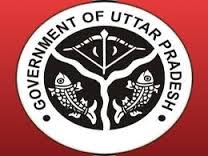In conventional agriculture , we use chemical fertilizers and pesticides to improve productivity. But it has its adverse impacts on environment , quality of food and health of consumers. Organic agriculture, on the other hand , has environmental sustainability at its core , in addition to concerns for healthy soil , healthy food and healthy people. In organic agriculture , farmers use compost and manure and use non-synthetic pesticides ,often only when other pest control measures fail. Practices such as crop rotations , inter-cropping , organic fertilizers and pesticides, minimum tillage , returning crop residues to the soil ,the use of cover crops and the greater integration of nitrogen –fixing legumes are central to organic practices. These practices improve soil formation, control soil erosion and encourage soil flaura and fauna to grow .Nutrient losses are reduced , helping to maintain and enhance soil productivity.
Many doubts and questions have been raised from time to time , whether organic farm products are really more nutritious than the products of conventional agriculture and also whether organic agriculture has really substantial benefits for environment.
According to a study published in British Journal of Nutrition (BJN) in July , 2014, organic products contain 18 to 69 percent higher concentration of antioxidants .This BJN study had carried an analysis of 343 peer-reviewed publications, and was done by the researchers from the UK with the help of an American Charles Benbrook. The study also said that when a plant grows organically without pesticides , its taste ,flavour , aroma and mouth feeling are enhanced as well. . The study also found a contaminant cadmium to be about 50% lower in organic crops than in conventional foods.
Organic agriculture contributes to mitigating the green house gases effect and global warming through its ability to sequester carbon in the soil. The management practices used by organic agriculture increase the return of carbon to the soil , raising the productivity and and favouring carbon storage. The more organic carbon is retained in the soil ,the lower the emissions leading to climate change the more the mitigation potential of agriculture against climate change .
A recent study reporting on a meta-analysis of 766 Scientific Papers concluded that organic farming produces more biodiversity than other farming systems. Practices like rotation of crops reduces erosion of agro-biodiversity.Lack of pesticide use attracts new species including wild flora and fauna ( eg birds) and organisms beneficial to the organic system such as pollinators and pest predators. The use of GMOs (Genetically Modified Organisms ) is not permitted during any stage of organic food production , processing or handling .Organic agriculture is choosing to encourage natural biodiversity , in stead of GMOs.
In many areas , pollution of ground water due to the use of chemical fertilizers and pesticides , is a major problem .Organic agricultural practices greatly reduce the risk of ground water pollution.
Certified organic products are those which have been produced , stored , processed , handled and marketed in accordance with precise technical specifications or standards , and certified as “Organic” by a Certification Body. The product is then afforded a label by the Certification body .The organic label is a production process claim as opposed to a product quality claim. National governments can use international guidelines to develop national organic agriculture programmes .To specify national standards in India and develop regulations which are legally binding ,the Government of India has implemented the National Programme for Organic Production (NPOP).It involves the accreditation programme for Certification Bodies , standards for organic production , and promotion of organic farming. National accreditation bodies accredit certification agencies operating in the country and adhere to the International Organization for Standardization basic standards for accreditation of certfiers(ISO65), in addition to their specific requirements. India has thirty accredited Certification agencies to facilitate the certification to growers. The NPOP standards for production and accreditation system have been recognized by European Commission and Switzerland for unprocessed plant products as equivalent to their country standards. With these recognitions , Indian organic products duly certified by the accreditation certification bodies of India are accepted by the importing countries.
Organic food is more expensive than conventional food. The reasons are as follows:
1.Organic food supply is limited as compared to demand.
- Organic farming involves greater labour input per unit of output.
- Economies of scale are not achieved.
- Post harvest handling of organic foods has higher costs.
- Because of relatively small volumes , marketing and distribution chain for organic products is relatively inefficient. As a result , costs are higher.
- Low financial returns of rotational periods (necessary to build soil fertility.)
- Higher standards required for animal welfare result in higher costs.
But organic farming has several benefits apart from its contribution to environment , biodiversity, soil quality, nutrition and health.
1.Avoidance of future medical expenses due to avoidance of health risks to farmers due to inappropriate handling of pesticides.( Malwa region in Punjab was dubbed as the Cancer Belt of India due to unusually high incidence of cancer cases linked to the excessive use of pesticides by cotton farmers.)
- Generation of additional farm employment.
3.. Organic farming supports animal health and welfare.
Organic agriculture is still a small part of the over-all agriculture. In the world , nearly 43.1 million ha land is being certified as organic in 170 countries, constituting 1% of the total agricultural land of the countries under study.The countries with the most organic agricultural land are :
Australia: 17.2 million ha.
Argentina: 3.2 million ha.
USA : 2.2 million ha.
As in March , 2014 , India had brought 4.72 million ha area under certification process which includes 0.6 million ha of cultivated agricultural land and 4.12 million ha of wild harvest collection area in forests.
So far , 11 states of India , namely Andhra Pradesh , Karnataka , Kerala, Uttarakhand, Maharashtra, Madhya Pradesh ,Tamil Nadu ,Himachal Pradesh , Sikkim, Nagaland and Mizoram have drafted the organic agricultural promotion policies.Sikkim had taken up the task of converting the entire state into organic by 2015 and has already brought more than 65000 ha area under organic certification process.Sikkim has transformed into an organic state and set an example for the rest of India.
India exported 165,262 MT of organic products belonging to 135 commodities valuing about 1900 crore rupees.Domestic market is also growing at an annual growth rate of 15-25%.
Organic agriculture has many environmental and health benefits.The movement for organic agriculture is slowly building up , and in near future is likely to take major leaps. India will host the 19th Organic World Congress (OWC) from November 9 to November 13 , 2017 .This event will take place in India Exposition Mart in Greater Noida.OWC is held every three years to promote and celebrate the turning of global agriculture to organic farming methods and to measure progress.
Author: Shri Vidyanand Garg, a Retd IAS officer with 30+ years of experience is presently with CMS Schools (Policy & Operations). He has been working as a civil servant in India since 1980 and has worked in senior administrative positions in the state of UP, India in the fields of housing, infrastructure, forests, information technology, and industrial development. He has held portfolios like Chairman, UP Forest Corporation , Infrastructure and Industrial Development Commissioner, Chairman- UP Finance Corporation, Principal Secy- IT, Housing Commissioner-UP to name a few





